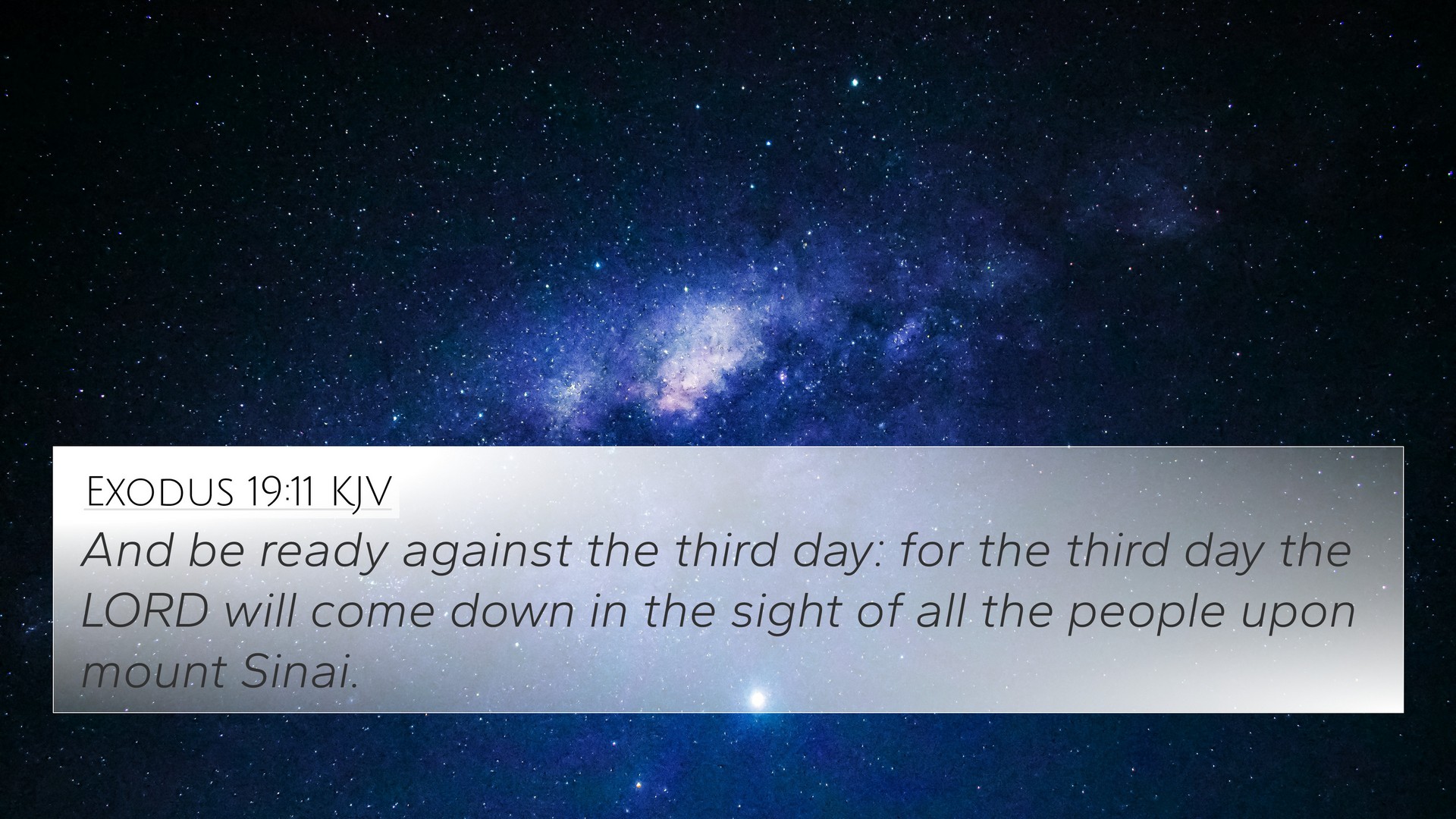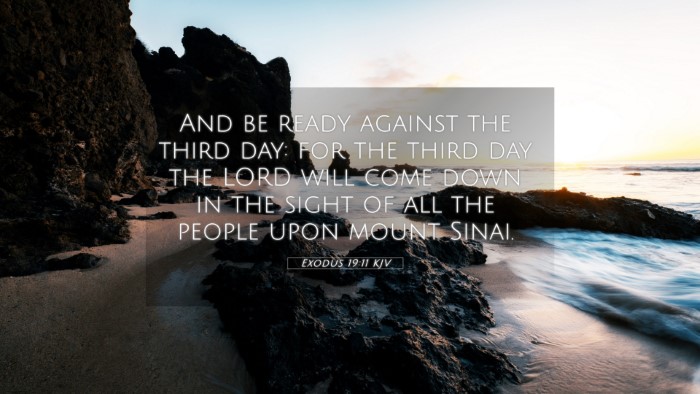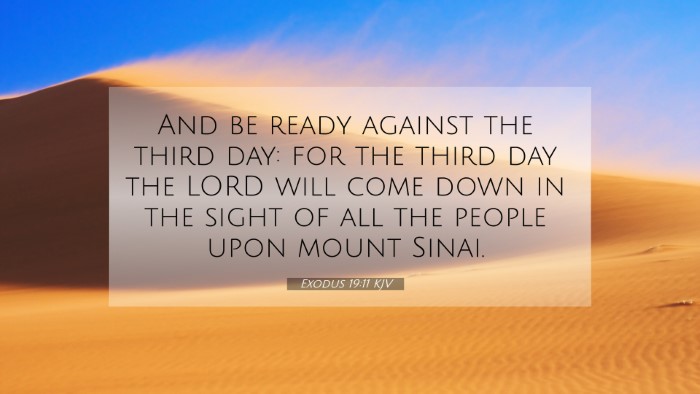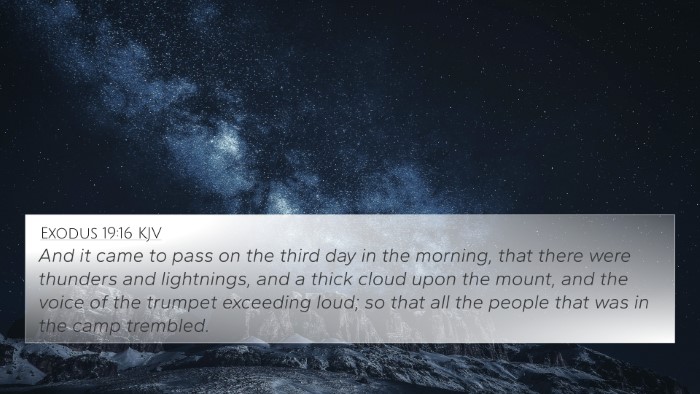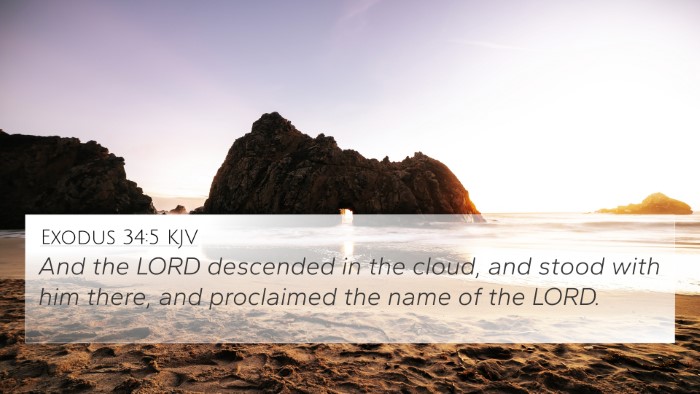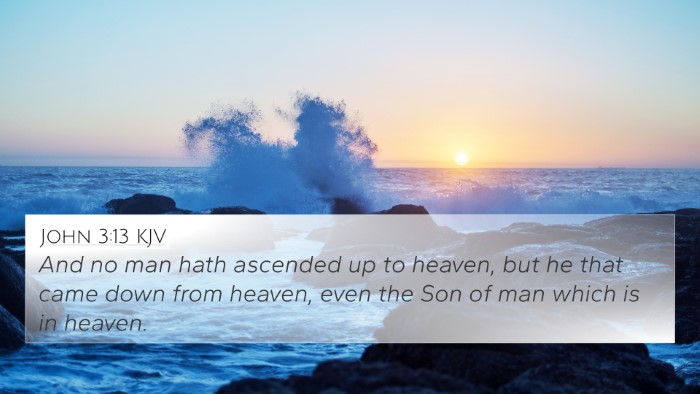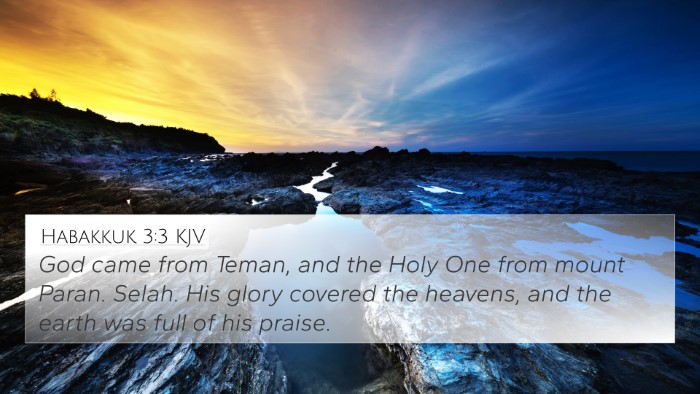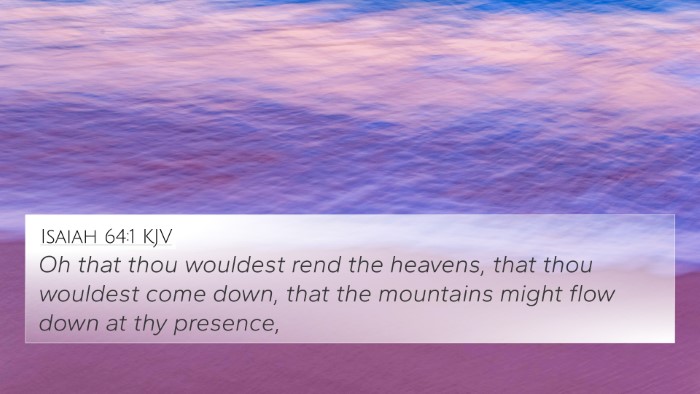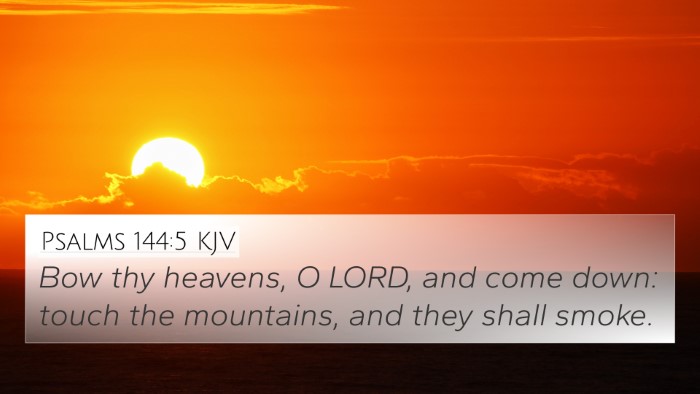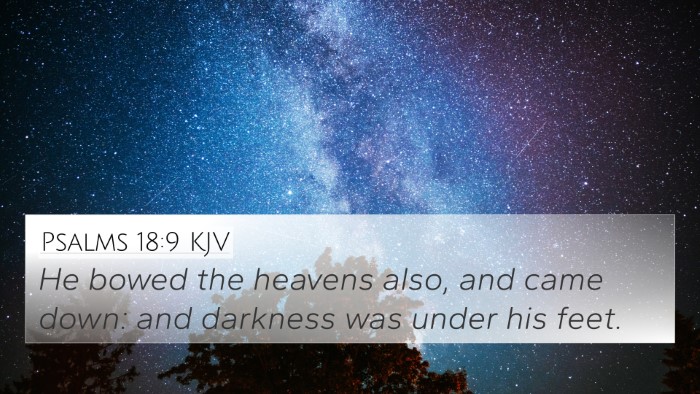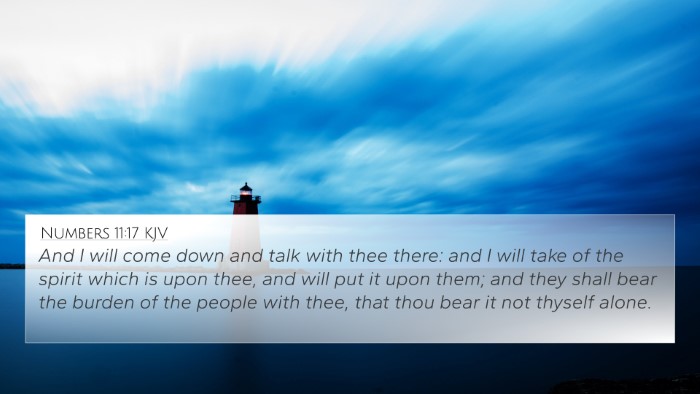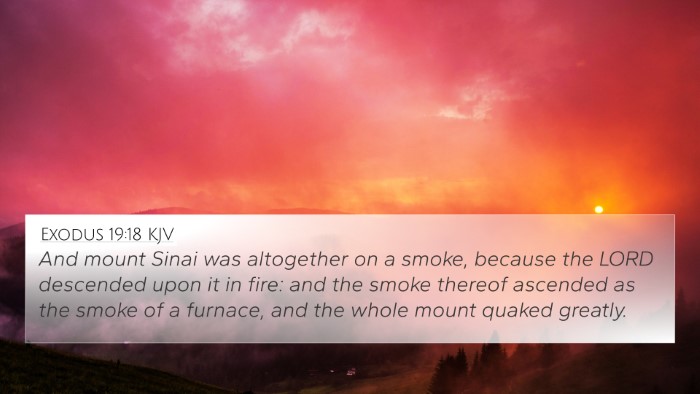Understanding Exodus 19:11
Exodus 19:11 states: "And be ready against the third day: for the third day the Lord will come down in the sight of all the people upon mount Sinai." This verse sets the stage for a monumental encounter between God and the Israelites. It signifies God's intention to reveal Himself to His chosen people in a tangible and powerful way.
Contextual Overview
In the preceding chapters, the Israelites have left Egypt and are journeying toward the Promised Land. Exodus 19 marks a crucial moment when God establishes His covenant with them at Sinai. The three days of preparation symbolize the sacredness of the encounter, emphasizing the need for personal and communal holiness before approaching God.
Theological Significance
- Preparation for Divine Encounter: The command to be ready underscores the importance of preparation in one's relationship with God. Just as the Israelites were instructed to prepare themselves, believers today are called to prepare their hearts to meet with God.
- God’s Approachability: The mention of God's descent indicates that He desires to be accessible to His people. This foreshadows the ultimate intimacy believers can have in Christ, who bridges the gap between humanity and the Divine.
- Sacred Time: The designation of the third day reflects the significance of time in divine revelation. It encourages reflection on how believers observe sacred moments in their spiritual lives.
Commentary Insights
Matthew Henry notes that God's coming down to the people is an act of grace. He emphasizes that divine revelation is rooted in God's desire for relationship, not just duty. Albert Barnes highlights the necessity of the people to prepare themselves, implying that coming close to God involves both reverence and readiness. Meanwhile, Adam Clarke elaborates on the implications of the third day, tying it to themes of resurrection and renewal.
Cross-References and Themes
This verse connects to several other biblical texts, enhancing its understanding through thematic and narrative links. Here are 10 significant cross-references:
- Hebrews 12:18-24: Compares the Sinai experience to the heavenly gathering in Jesus, highlighting the transition from the old covenant to the new.
- Exodus 20:18-21: Shows the people's reaction to God's presence at Sinai, emphasizing the fear and awe of approaching God.
- Deuteronomy 5:22: Reiterates the significance of God's law given at Sinai, drawing a connection to the foundations of covenantal living.
- Lamentations 3:25: Reflects on God's goodness to those who wait for Him, echoing the theme of preparation in Exodus 19:11.
- Matthew 28:1-10: The resurrection of Christ mirrors the concept of the third day, emphasizing renewal and divine presence.
- Acts 2:1-4: The descent of the Holy Spirit at Pentecost signifies a new era of God's presence among His people.
- 1 Peter 2:9: Describes believers as a chosen people, linking their identity to the covenant established at Sinai.
- James 4:8: Encourages believers to draw near to God, reflecting the idea of readiness and approachability.
- Revelation 1:10: Provides insight into the significance of the Lord’s Day, paralleling the readiness proclaimed in Exodus 19:11.
- Romans 5:1-2: Discusses the access believers have to God through faith, bridging the covenant between the Old and New Testaments.
Application for Today
Understanding Exodus 19:11 allows us to grasp the importance of preparation, holiness, and reverence in our relationship with God. As we engage in cross-referencing Biblical texts, we enrich our understanding of the narrative and theological themes that echo throughout Scripture.
Conclusion
Exodus 19:11 teaches us the profound importance of readiness in our spiritual lives. As we familiarize ourselves with Bible verse cross-references, we uncover the thematic connections that point to a grand narrative of redemption and relationship. Every instance of God's revelation throughout the Bible invites us to prepare our hearts and minds to encounter Him.
